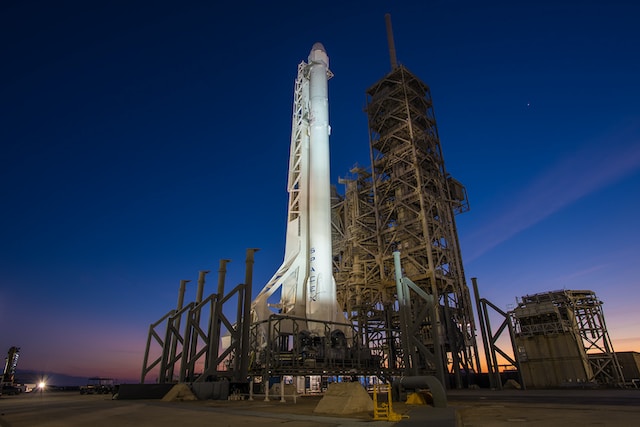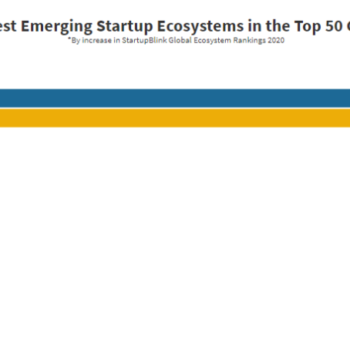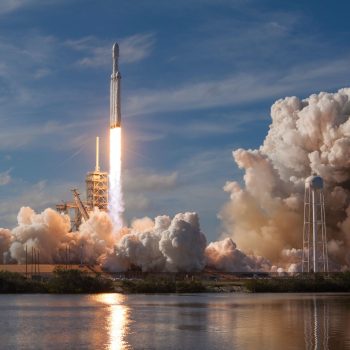As the aerospace industry experiences growth, governments globally are increasingly recognizing its potential, evident in the record-breaking global government expenditure on space programs reaching approximately US$ 103 billion in 2022 (Statista). This governmental interest aligns with the industry’s strategic importance, fostering advancements in aerospace technologies. Illustrating the promise this sector holds for innovation, SpaceX emerges as the second most valuable unicorn worldwide, with a valuation exceeding US$ 127 billion which underscores the growth potential within the aerospace industry. In this article, we listed the top aerospace organizations. From government-backed initiatives to groundbreaking startups like SpaceX, meet with must-know organizations in the industry.
Additionally, detailed information about the industry can be found in our upcoming “Global Aerospace Index.” As we have started the preparations for this new Index, ranking cities and countries excelling in the industry, we’re looking forward to extending our map with more Aerospace entities like startups, accelerators, and organizations. You can add your organization to the map and can further explore startups, unicorns, and exits across 1,000+ locations and 12 industries.
Top Aerospace Organizations
1. NASA
When it comes to space, one of the first organizations that comes to most people’s minds is NASA. The National Aeronautics and Space Administration has accomplished the remarkable feat of landing humans on the Moon, exploring every planet in our solar system, and solving major mysteries about our home planet. As a result of all this, it has become a brand that people not only in America but all over the world print the logo on their items such as sweatshirts and coffee mugs.
The agency invests in cutting-edge technologies, pushing the boundaries of what is possible and driving advancements in aerospace engineering. Many technologies developed by NASA have practical applications beyond space exploration. The innovations from NASA’s programs often find their way into the commercial sector, benefiting industries such as aviation, materials science, and telecommunications.
NASA collaborates with space agencies and organizations around the world and serves as a source of inspiration for people worldwide. This fosters international cooperation and the exchange of knowledge, contributing to a global aerospace community.

Using the data arriving from multiple sources such as Crunchbase and SEMRush, we listed out the top Aerospace Startups to watch in 2024.
2. Aerospace Industries Association
The Aerospace Industries Association is a trade organization from the USA that advocates for policies and initiatives that support the aerospace and defense industry. AIA is involved in promoting innovation within the aerospace and defense sector. This includes supporting research and development initiatives, advocating for advancements in technology, and addressing challenges facing the industry. The association fosters collaboration and communication among its member companies, creating a platform for networking, sharing best practices, and addressing common challenges.
3. European Space Agency (ESA)
The European Space Agency (ESA) serves as Europe’s entry point to space, aiming to influence the advancement of Europe’s space capabilities and guarantee that investments in space contribute ongoing benefits to the citizens of Europe and the global community.
As an international organization boasting 22 Member States, ESA leverages the financial and intellectual resources of its members, enabling the undertaking of programs and activities that extend well beyond the capacities of any individual European country.
The ESA Rising Stars initiative, led by ESA’s Commercialisation Services Department, aims to identify and showcase the most promising European space start-ups and scale-ups within its ecosystem in the spring of 2023. Selection criteria emphasized the credibility of business plans, the socio-economic impact of ESA-funded activities, and alignment with ESA’s strategic goals. Ultimately, 20 companies received awards. You can check the “Rising Stars” Award” here.
3. ROSCOSMOS
ROSCOSMOS stands as a State Corporation, founded in August 2015 with the primary objective of supervising and executing an extensive reform of the Russian space industry.
As the State Space Corporation, ROSCOSMOS is responsible for executing the Russian government’s space program and overseeing its legal regulation. Additionally, ROSCOSMOS plays a pivotal role in issuing contracts for the development, production, and delivery of space equipment and infrastructure objects.
5. JAXA (Japanese Aerospace Exploration Agency)
The Japan Aerospace Exploration Agency (JAXA) originated from the collaboration of three institutions: the Institute of Space and Astronautical Science (ISAS), the National Aerospace Laboratory of Japan (NAL), and the National Space Development Agency of Japan (NASDA). Recognized as a core performance agency, JAXA plays a crucial role in supporting the comprehensive aerospace development and utilization objectives of the Japanese government.
As covered by Nikkei Assia; JAXA will be given free rein to invest in the private sector. It means the number of supported aerospace startups may increase, and this is an exciting development for the Japanese ecosystem.
6. The Indian Space Research Organisation (ISRO)
The Indian Space Research Organisation (ISRO) stands as India’s space agency, actively engaged in scientific, engineering, and technological endeavors to harness the advantages of outer space for both India and humanity. Operating as a significant component of the Department of Space (DOS) under the Government of India, ISRO plays a role in executing the Indian Space Programme. This program is predominantly implemented through various centers or units within the ISRO framework.
ISRO organizes sessions, as well as accelerators and incubators for dynamic space startups, which means that they view start-ups as vital industry partners for its modern era, contributing to India’s space aspirations. To encourage greater involvement in space activities, ISRO has taken steps to enhance collaboration with startups.
7. CNSA (China National Space Administration)
The China National Space Administration (CNSA) functions as a governmental body within the People’s Republic of China, with its headquarters situated in Haidian, Beijing. It oversees civil space administration and fostering international collaboration in the field of space exploration. Among its duties is the coordination and leadership of foreign exchanges and cooperation in the aerospace domain. The CNSA operates as an administrative agency under the Ministry of Industry and Information Technology.
8. Luxembourg Space Agency
Established in 2018, the Luxembourg Space Agency undertakes the mission of elevating the space sector in Luxembourg. This involves nurturing both new and established companies, cultivating human resources, easing access to funding, and endorsing academic research. The agency actively executes the national strategy for economic development in space, oversees national space research and development initiatives, and spearheads the SpaceResources.lu initiative.
Now, let’s proceed with private companies. All of these companies contribute to the aerospace ecosystem in different ways, and that’s why we have included them in our list.
9. Airbus
Airbus consistently introduces groundbreaking innovations to deliver cutting-edge and efficient solutions in aerospace, defense, and connected services. Mostly known for its commercial aircrafts, Airbus presents state-of-the-art, fuel-efficient airliners.
Airbus also has a venture capital firm called Airbus Venture, headquartered in Silicon Valley with offices in Paris and Tokyo. Airbus Venture invests in promising space startups and supports innovation in the aerospace industry since 2015.
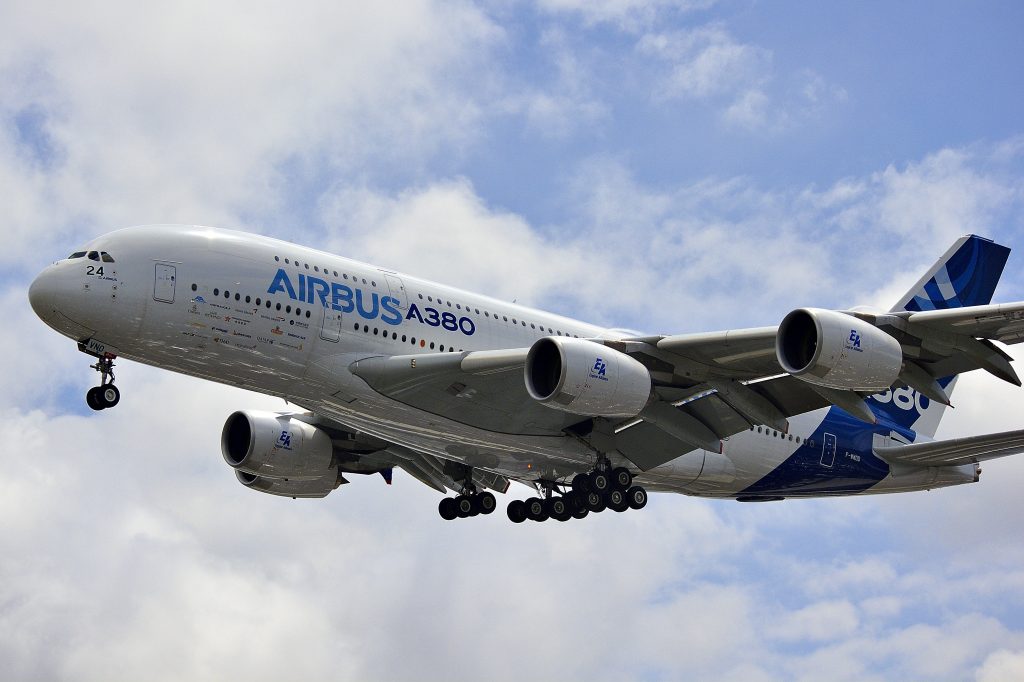
10. Boeing
Boeing is another well-known for its commercial aircraft but also specializes in defense products, and space systems for clients spanning over 150 countries. Serving as a major U.S. exporter, the company harnesses the expertise of a worldwide supplier network to drive economic growth, sustainability, and community engagement.
Boeing has a special startup support team called “The StartupBoeing team”. StartupBoeing provides comprehensive support to qualified startup airlines, offering guidance, review, analysis, data, resources, contacts, and referrals throughout the entire process from concept to launch.
11. Planet
Founded in 2010 by three visionary NASA scientists, Planet has emerged as the provider of global, daily satellite imagery and insightful data. Planet engineers, constructs, and manages the most extensive constellation of imaging satellites, alongside developing online software, tools, and analytics essential for the seamless delivery of data to users.
Planet has a startup support program and they are looking for driven, mission-centric, and high-impact startups.
12. Raytheon
Raytheon Technologies Corp. is involved in delivering aerospace and defense systems and services to a range of customers, including commercial, military, and government entities. The company operates through distinct segments, namely Collins Aerospace Systems, Pratt and Whitney, Raytheon Intelligence and Space, and Raytheon Missiles and Defense.
RTX has invested in several startups in the Aerospace industry such as Hermeus that we mentioned in our article: Top Aerospace Startups to Watch in 2024.
13. SpaceX
SpaceX engineers, produces, and launches the most cutting-edge rockets and spacecraft globally. Established in 2002 by Elon Musk, the company’s mission is to redefine space transportation, aspiring to enable life beyond Earth.
Noteworthy for its series of groundbreaking achievements, SpaceX holds the distinction of being the sole private entity to recover a spacecraft from low-Earth orbit, a milestone first reached in December 2010. Due to the level of impact SpaceX has created within the Aerospace Industry, such as its record-breaking streak of 101 consecutive successful launches of the Falcon 9 rocket, the highest number of launches of a single rocket type in a year with 60 successful Falcon 9 launches, and the groundbreaking Inspiration4 mission, which marked the first all-civilian spaceflight, SpaceX has been listed as a Pantheon Member on our map and SpaceX is the most valuable US unicorn and the second in the world.
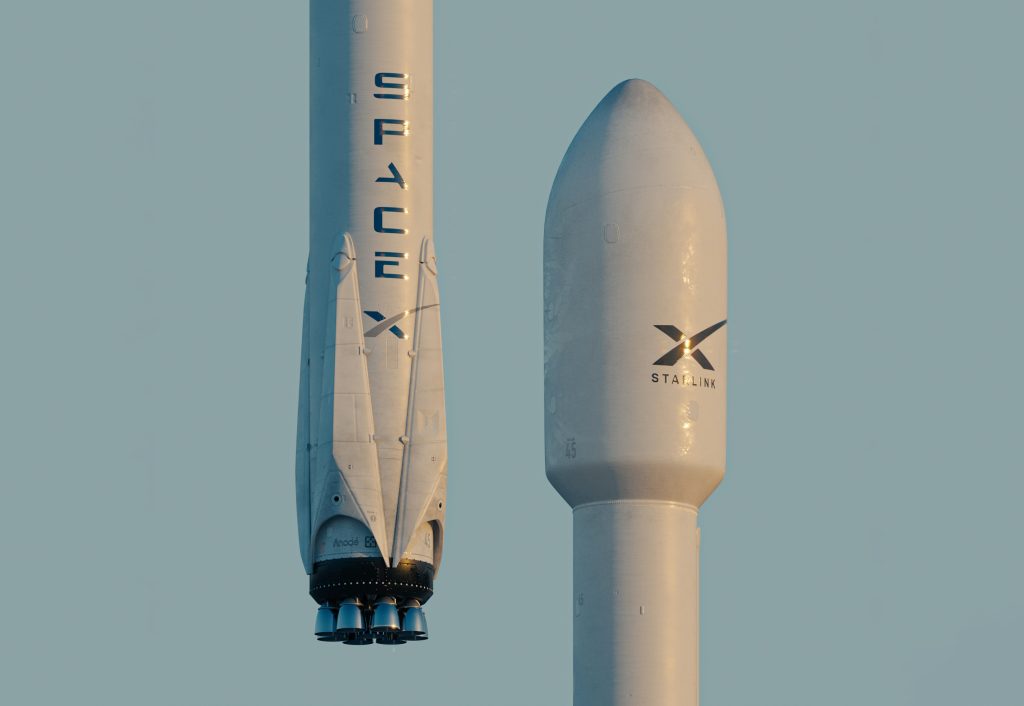
14. Blue Origin
Blue Origin is driven by a vision that envisions millions of individuals living and working in space for the betterment of Earth. In pursuit of this future, Blue Origin is actively engaged in the development of reusable launch vehicles and in-space systems characterized by safety, cost-effectiveness, and the ability to meet the diverse needs of civil, commercial, and defense customers. Blue Origin has suspended operations of its New Shepard suborbital rocket for more than 15 months, but the company has announced that it will conduct an uncrewed mission as early as December 18, according to Techcrunch news. As of now, Blue Origin’s spacecraft has completed over 22 flights, carrying a total of 31 individuals, including CEO Jeff Bezos himself, to the edge of space and safely returning them.

15. Arianespace
Arianespace is a French company founded in 1980 as the world’s first commercial launch service provider. Additionally, the company has offices in the United States (Washington, D.C.), Japan (Tokyo), and Singapore. The operational hub for Arianespace’s launch services is located in South America at the Spaceport in Kourou, French Guiana. Pioneering the commercial space transportation sector since its establishment in 1980, Arianespace has consistently set industry benchmarks with a series of operational firsts and record-setting missions.
16. United Launch Alliance (ULA)
United Launch Alliance, often known as ULA, is an American aerospace manufacturer, defense contractor, and provider of launch services. The company designs, manufactures, and operates various rocket vehicles dedicated to launching spacecraft into orbits around Earth and other celestial bodies in the Solar System. They want it to be cheaper, easier to get to, and more like a business with their new rocket called Vulcan. Vulcan is more dependable, costs less, is lighter, and can do more things to make sure space travel is easier and accessible.
17. Thales Alenia Space
Thales Alenia Space provides affordable solutions for various purposes like telecommunications, navigation, Earth observation, environmental management, exploration, science, and orbital infrastructures. Governments and private businesses rely on Thales Alenia Space to create satellite-based systems. These systems offer connections and positioning anywhere, anytime. They also play a role in monitoring our planet, improving resource management, and exploring our Solar System and beyond.
18. Rocket Lab
Established in 2006, Rocket Lab is an aerospace manufacturer and launch service provider company with a proven history of successful missions. They provide dependable launch services, spacecraft components, satellites, and other space-related solutions, including on-orbit management. They aim to make space access quicker, simpler, and more cost-effective. To this date, Rocket Lab has deployed more than 150 satellites to orbit for customers across commercial, civil, defense, and academic sectors.
19. Axiom Space
Axiom Space provides human spaceflight services and develops space infrastructure designed for human use. Their operations encompass comprehensive missions to the International Space Station (ISS). Simultaneously, they are actively working on the development of its successor, Axiom Station, and crafting advanced spacesuits for use in low-Earth orbit, on the Moon, and beyond. Axiom Space, one of the space startups with promising potential, raises $350M at Series-C close with $2.2B+ in customer contracts in 2023.
20. Maxar
Maxar is a collaborator in Earth intelligence and space infrastructure. Their mission is to provide groundbreaking value to both government and commercial customers. They assist stakeholders in monitoring, comprehending, and navigating the transformations on our planet. Additionally, they contribute to global broadband communications and actively engage in the exploration and advancement of space utilization.
